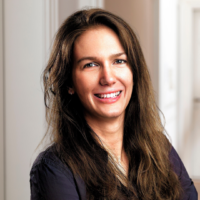Welcome to our recurring section “Drijfveren”. Normally, researchers in this blog talk about their motivations for conducting animal-free research, but this time it’s time for our colleague Anne Burgers to shine. From her position as advisor science and innovation, Anne keeps an eye on developments in science and policy and gives about 30 lectures about animal-free alternatives at colleges and universities each year.

Focus on the facts
Anne obtained her bachelor’s degree in animal sciences at Wageningen University. During her master’s, she delved into the interaction between animal behavior and their environment. She then held various positions in animal welfare. But no matter what she does, she believes it’s important to prioritize facts. “When it comes to animal welfare, the debate is often based on opinions and emotions. There should be room for that too, but ultimately I believe you need to come with a strong justification. That’s why I feel completely at home at Proefdiervrij.”
Science first
Anne’s preference for sticking to the facts helps her to engage students in her lecture. “When I took over the lectures from my predecessor, it was a logical moment to revise the content of the lectures. Surveys we conducted showed that students often saw the lecture as a promotional talk for our mission. But we want to introduce students seriously to the possibilities of animal-free alternatives. That’s why I dive into the content first. I explain that animal experiments often do not translate to humans, discuss some alternatives, and provide concrete examples from the field. Only when I talk about all the players involved in the transition to animal-free science do I mention our role.”
Surprise
Anne notices that most students know about animal-free alternatives from their education. But when she tells them that 9 out of 10 drugs that test positive on animals ultimately do not work for humans, it’s almost always new information to them. “Honestly, that surprises me. Of course, it’s good that scientists don’t always go along with everything, but this is so well scientifically supported. I continue to find it remarkable how much time it takes to steer people in a different direction once a certain approach has become commonplace.”

